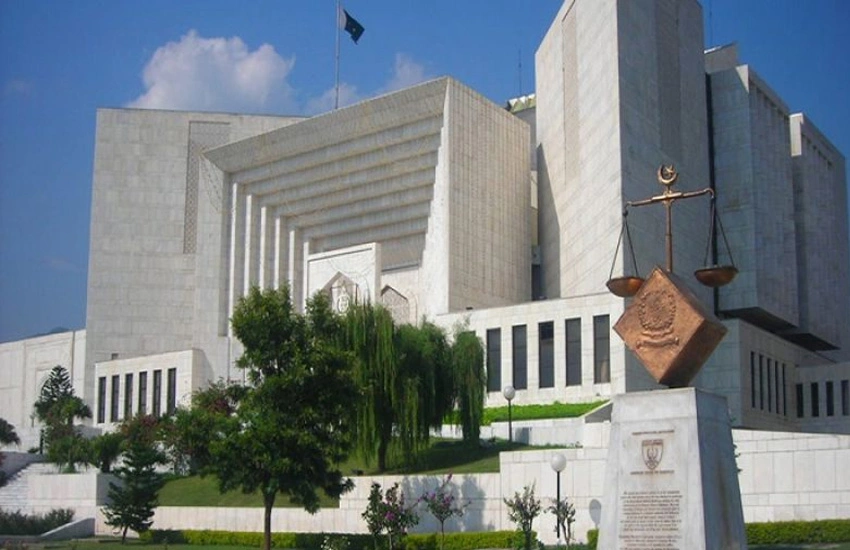- Web Desk
- Feb 24, 2026
Transfer of judges case is of ‘bad faith’, says Hamid Khan
-

- Web Desk Ahsan Wahid
- May 15, 2025

ISLAMABAD: A five-member Constitutional Bench of the Supreme Court headed by Justice Muhammad Ali Mazhar resumed the hearing of judges transfer and seniority case.
Presenting his arguments, the counsel Munir A Malik said that the seniority of judges is linked to the independence of the judiciary.
Justice Shahid Bilal said that in the past, three judges of the Lahore High Court (LHC) became the chief justices of the Islamabad High Court (IHC). Laywer Malik answered that under Article 175/3, the judiciary has been kept separate from the executive.
“Who should determine seniority?” Justice Mazhar asked, to which the counsel replied that seniority will be determined by the Chief Justice of Pakistan (CJP).
Justice Mazhar said, “The power to determine seniority by the Chief Justice is administrative. Where will the aggrieved party approach against the administrative decision of the Chief Justice?”
The counsel answered, “The aggrieved party will approach the competent court for redress.”
Justice Naeem Akhtar Afghan said, “In the past, LHC Justice Sardar Aslam was made IHC Chief Justice.” To this Malik said that Justice Sardar Aslam was appointed to the IHC under Article 193, adding that he was not transferred. He was appointed to the IHC and then made the Chief Justice.”
“The President exercised the power of transfer and appointment for the Chief Justice of the Islamabad High Court,” Munir A Malik added.
Justice Salahuddin Panwar said, “At that time, there was no 18th Amendment and Judicial Commission. The President of Pakistan had the full power of appointment.”
Lawyer Malik said, “The offices of the judges of LHC and IHC are different. The composition of the Judicial Commission for appointment in both High Courts is also different.”
He added that the oath of each High Court judge is different and the person who takes the oath is also different. “The process of judges who come on exchange is completed by taking the oath,” he said.
Justice Mazhar pointed out that the constitution is silent on whether the transferred judge will take a new oath. “Reading Article 200 in conjunction with Article 175A will result in a judge never being transferred,” he remarked.
“Combining Article 200 with Article 175A will result in a new appointment, “Justice Mazhar said, adding, “No judge takes the oath of a permanent judge. First, the oath of an additional judge is taken, then he becomes permanent through the Judicial Commission.”
Justice Mazhar continued, “Then if that judge becomes the Chief Justice, he takes the oath. Transfer cannot be considered as a new appointment.”
Lawyer Malik said that transfer of a judge should be seen in the context of independence of the judiciary.
The bench took a short break after Malik’s arguments. After the break, Advocate Hamid Khan began his arguments.
“The LHC Bar Association is 133 years old,” Hamid Khan said, adding that the LHC Bar Association has 25,000 lawyers as members.”
He said that lawyers have a big concern over the transfer of judges. “Lawyers contend that what is happening to our judicial system?” he added.
Justice Mazhar, addressing Hamid Khan said, “Munir A Malik has given many arguments. Try not to repeat his arguments.”
Hamid Khan then said that this case of transfer of judges is concerned with bad faith, in both law and facts.
This is a developing story…




